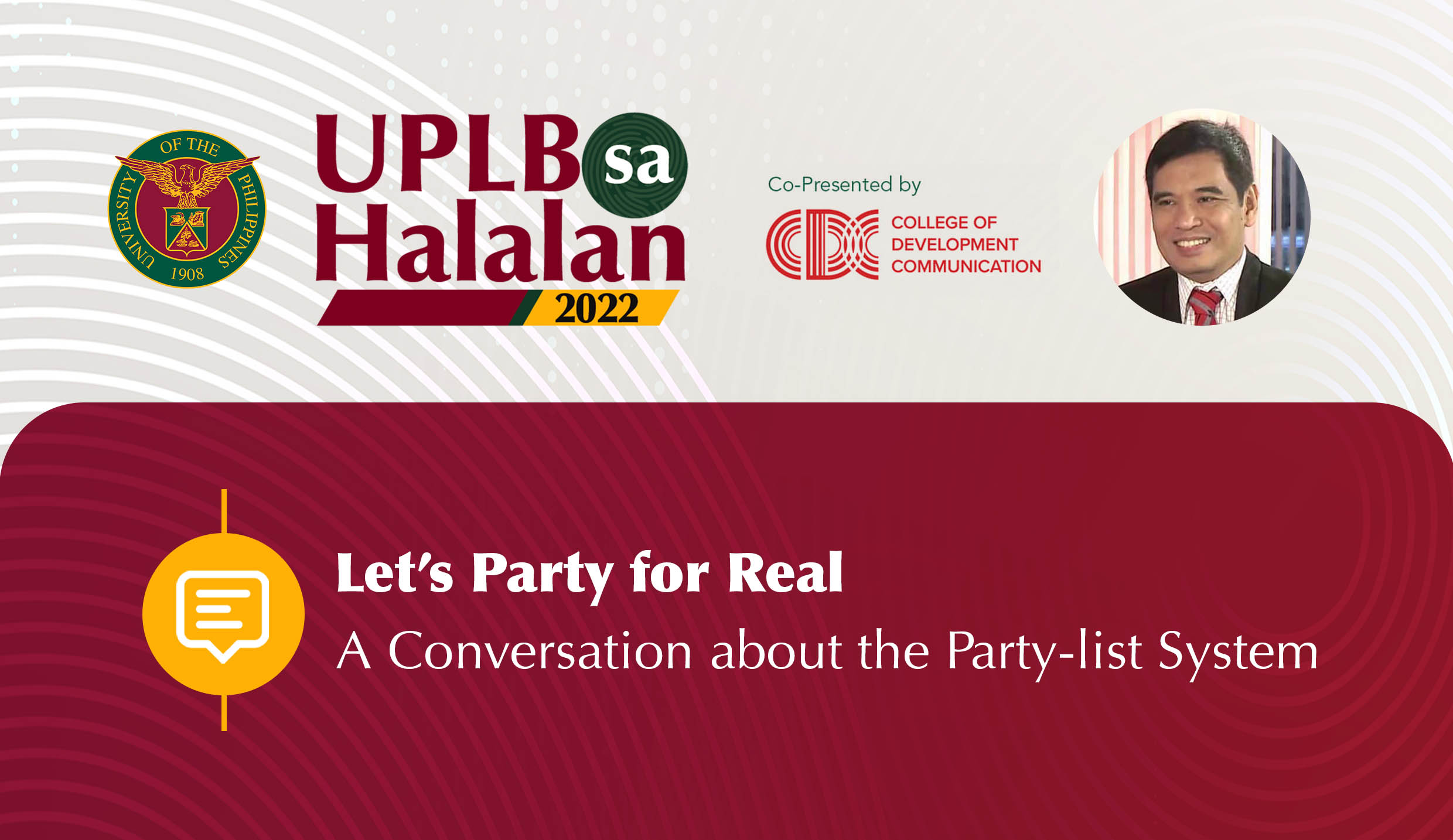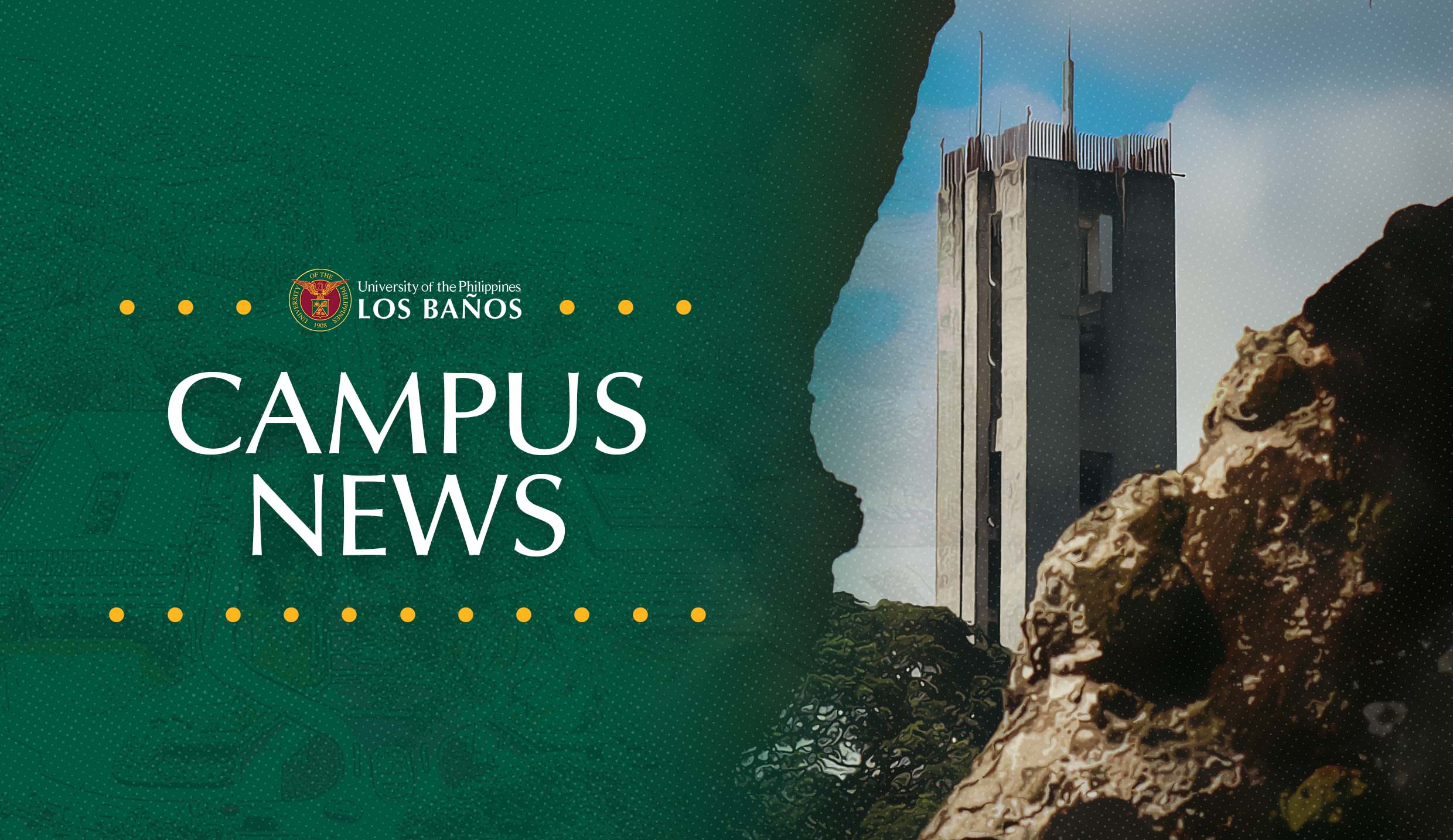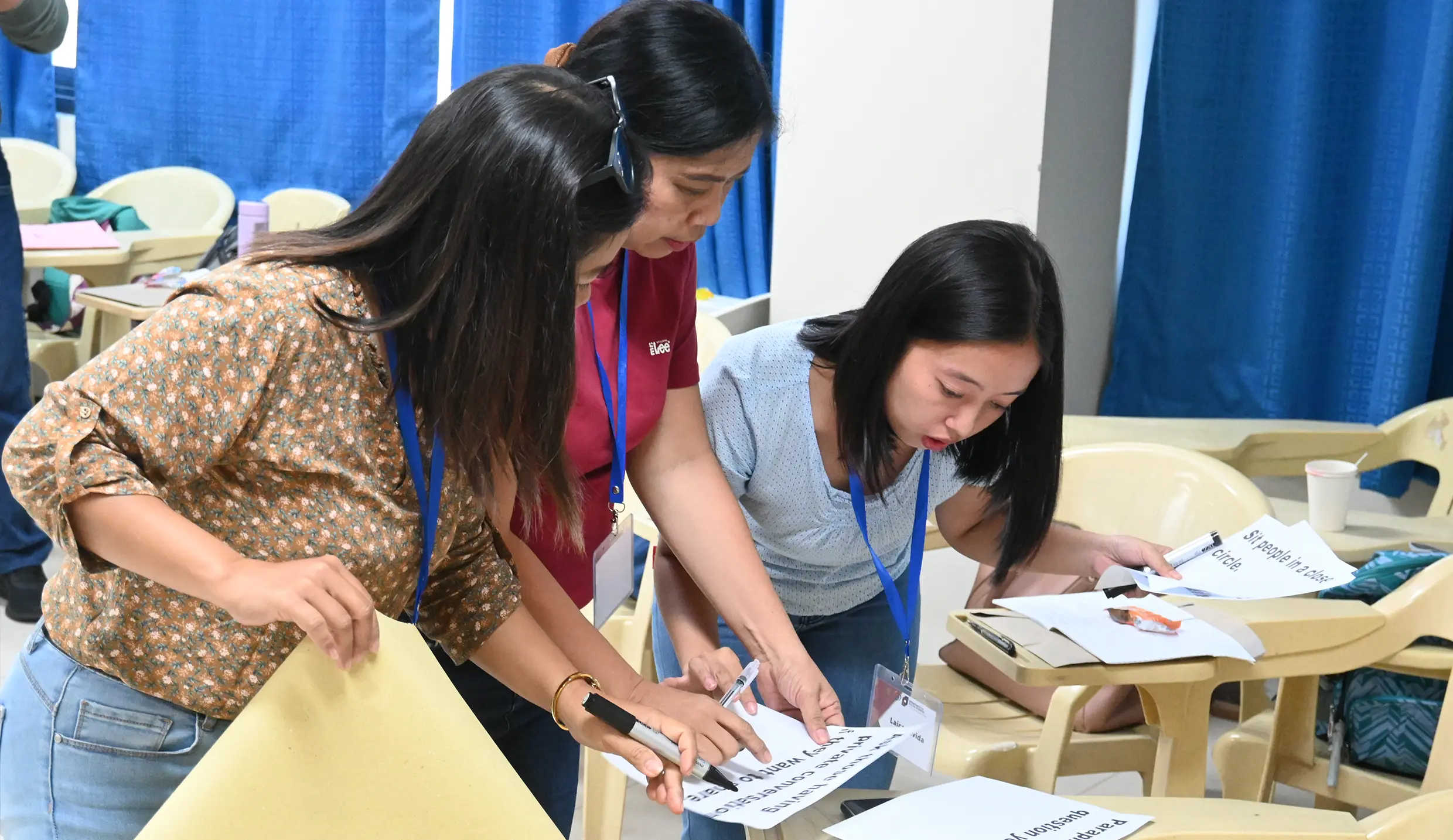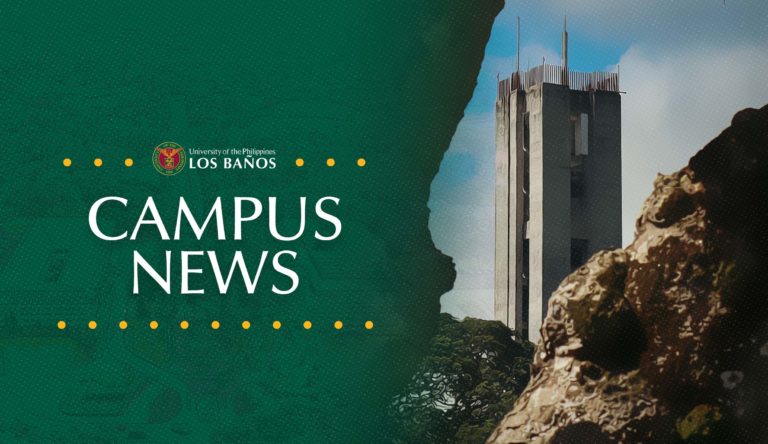
The College of Development Communication (CDC) organized the third online webinar on concerns regarding the 2022 national elections.
Entitled “Let’s Party for Real: A Conversation about the Party-list System,” the webinar was held on March 29 to further inform the public about the Philippine party-list system and the party-list groups running for office in the elections on May 9.
The chair of the Department of Development Journalism of CDC, Prof. Aletheia C. Araneta, gave the opening remarks for the event.
She said that the webinar is essential for all those who wish to learn more about the actual roles that party-list groups play in congress, and to help voters better understand the significance of choosing a party-list.
The resource person, Danilo Arao, a faculty member at the Department of Journalism of the UP Diliman College of Mass Communication and editor of refereed journal Media Asia, spoke as convenor of Kontra Daya.
Kontra Daya was formed by individuals and groups to work against and prevent any form of cheating from happening in elections in the Philippines. It was formed in 2007 amid a controversial election issue referred to as the “Hello Garci” scandal.
Arao bewailed the fact that at least 70% of the total party-list groups have been hijacked by the “rich and powerful.”
He said that there are 177 party-list groups that are running for 63 seats at the House of Representatives (HoR) and that only one vote is needed from each qualified voter.
He cautioned those in the audience to vote for only one party-list group to avoid having their ballot invalidated if they vote for two or more.
Arao said that a party-list group can have up to three seats at the HoR if they get 6% or more of the total number of votes.
Quoting from the 1995 COMELEC primer, Arao reminded the viewers that the rationale of the party-list system is to provide representation for the marginalized and underrepresented groups and have a voice among the dominating parties with big political machineries.
He said that Kontra Daya has flagged 125 out of 177 party-list groups that have been hijacked by the rich and powerful such as political dynasties and big businesses.
Some have dubious advocacies, connections with the government, the military, or with incumbent local officials, have nominees with court cases and criminal charges or have been implicated in scandals and other controversial issues.
He also pointed out how local elected officials use the party-list as their benchwarmer after they have finished their maximum term of office and go back to the position after the next election cycle when they can run again.
Many party-list groups have been listed by Kontra Daya with multiple red flags, meaning they have two or more issues of being “hijacked by rich and powerful groups or individuals.”
Arao also presented a list of 35 party-list groups that were “unflagged” and 19 for which they had limited to no information. He said that the classification of these 19 party-list groups could still change once verifiable information is available.
A question-and-answer session followed the short talk of Arao where he tackled terminologies in the definition of party-list groups including “such as” and “marginalized.”
He also discussed issues like regional party-list groups causing further marginalization of marginalized groups, those that are notorious for red-tagging, the lack of transparency on nominees of party-list groups and their platforms, and the use of party-list groups to promote interests other than that of the sector they claim to represent.
He explained how a party-list representative can be recalled and the seat given to another person and explained why there are many party-list groups that are running for seats in the HoR in relation to the pork barrel.
Arao also gave the audience tips on choosing the party-list group to vote for. To guide them in their decision, he urged the audience to visit the full data on the 177 party-list groups that Kontra Daya volunteers have collected and shared on the group’s Facebook page.
Dr. Trina Leah Mendoza, chair of the Department of Development Broadcasting and Telecommunication of CDC, gave the closing remarks and thanked the audience for their active participation. She also recognized the organizers from UPLB Graduate School and CDC, and invited everyone to continue to tune in for future activities that they will be organizing for the elections.
The webinar video may be viewed on the UPLB Official Facebook page. (Kristel Hope Villafuerte and Josephine Bo)








